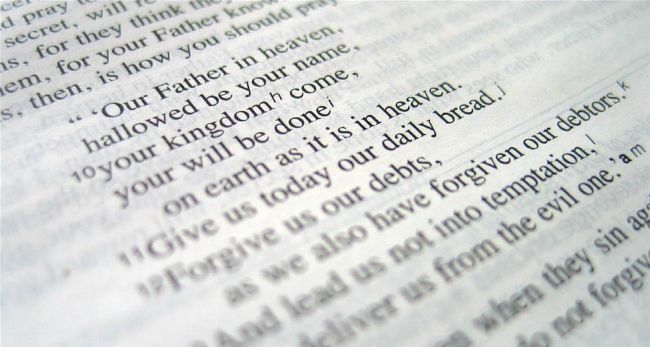Daily Bread
In the fifth part of his series reflecting on the Lord’s Prayer, David Searle looks at the fourth petition.

Photo: iStock
THE first part of the Lord’s Prayer followed a logical pattern of thought about God himself.
The second part follows a logical pattern about ourselves – our bodies, souls and temptations. God has created our bodies to be the earthly home for our souls. Therefore, we are to look after them and certainly not abuse them.
The phrase ‘daily bread’ literally means ‘bread the needed’. It was used of the parcel of food laid out each evening in kitchens of great houses for each slave’s need for the next day. Some translations call it ‘the bread of our necessity’ – our daily needs. It is a modest prayer, not a selfish prayer. It never includes a win on the lottery. David wrote of ‘a table provided in the wilderness.’
Imagine being accosted by a beggar in Edinburgh’s Princes Street. Would they be pleased if you took them into the National Gallery to view great paintings by world famous artists? No! They would need a square meal.
My wife and I were once asked to give hospitality to a Malawian human rights lawyer who worked for a Christian charity trying to obtain releases for prisoners illegally incarcerated in crowded prison cells. At that time, thousands were starving in that country. Over that weekend our guest commented: ‘It must be very hard to be a Christian in Scotland.’ Puzzled and thinking it must rather be hard to be a Christian in Malawi, we asked what she meant. ‘In Malawi,’ she said, ‘we have to pray fervently: “Give us this day our daily bread”. But you don’t need to pray that. You already have more than you need.’
Do we need to pray this fourth petition? If we do not see any need for this prayer, there must be something seriously wrong with our praying. Are we distorting the prayer Christ gave us and saying, ‘Give me this day my daily bread.’? There are no singular pronouns in the Lord’s Prayer. No ‘me’ or ‘my’ or ‘I’. The pronouns are all plural – ‘us’ and ‘our’ and ‘we’. When this prayer is rightly offered to God, our arms must in faith be wrapped compassionately around all those who urgently need someone to pray for them.
There are times when God expects us to provide the answer to our prayers. I am thinking of Christian Aid, Tearfund, Barnabas Fund and other humanitarian charities. If the Holy Spirit brings one or other of these great agencies into our minds as we pray, ‘Give us our daily bread’, will you hear his gentle prompting? And will you obey his voice and begin to obey practically and sacrificially?
Therefore, as we pray let us wrap the arms of faith around some of the Lord’s people in desperate need. Include them in this fourth petition. Who knows, that might mean some practical action by taking out a Direct Debit to provide a small part of the answer to this fourth petition.